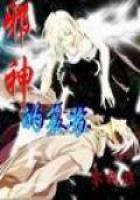Gathering together the conclusions already obtained, we find that daily or frequent experience of the phenomena of shadows and dreams has combined with less frequent experience of the phenomena of trance, ecstasy, and insanity, to generate in the mind of uncultured man the notion of a twofold existence appertaining alike to all animate or inanimate objects: as all alike possess material bodies, so all alike possess ghosts or souls. Now when the theory of object-souls is expanded into a general doctrine of spirits, the philosophic scheme of animism is completed. Once habituated to the conception of souls of knives and tobacco-pipes passing to the land of ghosts, the savage cannot avoid carrying the interpretation still further, so that wind and water, fire and storm, are accredited with indwelling spirits akin by nature to the soul which inhabits the human frame. That the mighty spirit or demon by whose impelling will the trees are rooted up and tile storm-clouds driven across the sky should resemble a freed human soul, is a natural inference, since uncultured man has not attained to the conception of physical force acting in accordance with uniform methods, and hence all events are to his mind the manifestations of capricious volition. If the fire burns down his hut, it is because the fire is a person with a soul, and is angry with him, and needs to be coaxed into a kindlier mood by means of prayer or sacrifice. Thus the savage has a priori no alternative but to regard fire-soul as something akin to human-soul; and in point of fact we find that savage philosophy makes no distinction between the human ghost and the elemental demon or deity. This is sufficiently proved by the universal prevalence of the worship of ancestors. The essential principle of manes-worship is that the tribal chief or patriarch, who has governed the community during life, continues also to govern it after death, assisting it in its warfare with hostile tribes, rewarding brave warriors, and punishing traitors and cowards. Thus from the conception of the living king we pass to the notion of what Mr. Spencer calls "the god-king," and thence to the rudimentary notion of deity. Among such higher savages as the Zulus, the doctrine of divine ancestors has been developed to the extent of recognizing a first ancestor, the Great Father, Unkulunkulu, who made the world. But in the stratum of savage thought in which barbaric or Aryan folk-lore is for the most part based, we find no such exalted speculation. The ancestors of the rude Veddas and of the Guinea negroes, the Hindu pitris (patres, "fathers"), and the Roman manes have become elemental deities which send rain or sunshine, health or sickness, plenty or famine, arid to which their living offspring appeal for guidance amid the vicissitudes of life.[179] The theory of embodiment, already alluded to, shows how thoroughly the demons which cause disease are identified with human and object souls. In Australasia it is a dead man's ghost which creeps up into the liver of the impious wretch who has ventured to pronounce his name; while conversely in the well-known European theory of demoniacal possession, it is a fairy from elf-land, or an imp from hell, which has entered the body of the sufferer. In the close kinship, moreover, between disease-possession and oracle-possession, where the body of tile Pythia, or the medicine-man, is placed under the direct control of some great deity,[180] we may see how by insensible transitions the conception of the human ghost passes into the conception of the spiritual numen, or divinity.
[179] The following citation is interesting as an illustration of the directness of descent from heathen manes-worship to Christian saint-worship: "It is well known that Romulus, mindful of his own adventurous infancy, became after death a Roman deity, propitious to the health and safety of young children, so that nurses and mothers would carry sickly infants to present them in his little round temple at the foot of the Palatine. In after ages the temple was replaced by the church of St. Theodorus, and there Dr. Conyers Middleton, who drew public attention to its curious history, used to look in and see ten or a dozen women, each with a sick child in her lap, sitting in silent reverence before the altar of the saint. The ceremony of blessing children, especially after vaccination, may still be seen there on Thursday mornings."Op. cit. II. 111.
[180] Want of space prevents me from remarking at length upon Mr. Tylor's admirable treatment of the phenomena of oracular inspiration. Attention should be called, however, to the brilliant explanation of the importance accorded by all religions to the rite of fasting. Prolonged abstinence from food tends to bring on a mental state which is favourable to visions. The savage priest or medicine-man qualifies himself for the performance of his duties by fasting, and where this is not sufficient, often uses intoxicating drugs; whence the sacredness of the hasheesh, as also of the Vedic soma-juice.
The practice of fasting among civilized peoples is an instance of survival.
To pursue this line of inquiry through the countless nymphs and dryads and nixies of the higher nature-worship up to the Olympian divinities of classic polytheism, would be to enter upon the history of religious belief, and in so doing to lose sight of our present purpose, which has merely been to show by what mental process the myth-maker can speak of natural objects in language which implies that they are animated persons. Brief as our account of this process has been, Ibelieve that enough has been said, not only to reveal the inadequacy of purely philological solutions (like those contained in Max Muller's famous Essay) to explain the growth of myths, but also to exhibit the vast importance for this purpose of the kind of psychological inquiry into the mental habits of savages which Mr. Tylor has so ably conducted.
Indeed, however lacking we may still be in points of detail, Ithink we have already reached a very satisfactory explanation of the genesis of mythology. Since the essential characteristic of a myth is that it is an attempt to explain some natural phenomenon by endowing with human feelings and capacities the senseless factors in the phenomenon, and since it has here been shown how uncultured man, by the best use he can make of his rude common sense, must inevitably come, and has invariably come, to regard all objects as endowed with souls, and all nature as peopled with supra-human entities shaped after the general pattern of the human soul, I am inclined to suspect that we have got very near to the root of the whole matter. We can certainly find no difficulty in seeing why a water-spout should be described in the "Arabian Nights" as a living demon: "The sea became troubled before them, and there arose from it a black pillar, ascending towards the sky, and approaching the meadow,.... and behold it was a Jinni, of gigantic stature." We can see why the Moslem camel-driver should find it most natural to regard the whirling simoom as a malignant Jinni; we may understand how it is that the Persian sees in bodily shape the scarlet fever as "a blushing maid with locks of flame and cheeks all rosy red";and we need not consider it strange that the primeval Aryan should have regarded the sun as a voyager, a climber, or an archer, and the clouds as cows driven by the wind-god Hermes to their milking. The identification of William Tell with the sun becomes thoroughly intelligible; nor can we be longer surprised at the conception of the howling night-wind as a ravenous wolf. When pots and kettles are thought to have souls that live hereafter, there is no difficulty in understanding how the blue sky can have been regarded as the sire of gods and men. And thus, as the elves and bogarts of popular lore are in many cases descended from ancient divinities of Olympos and Valhalla, so these in turn must acknowledge their ancestors in the shadowy denizens of the primeval ghost-world.
August, 1872.
End















